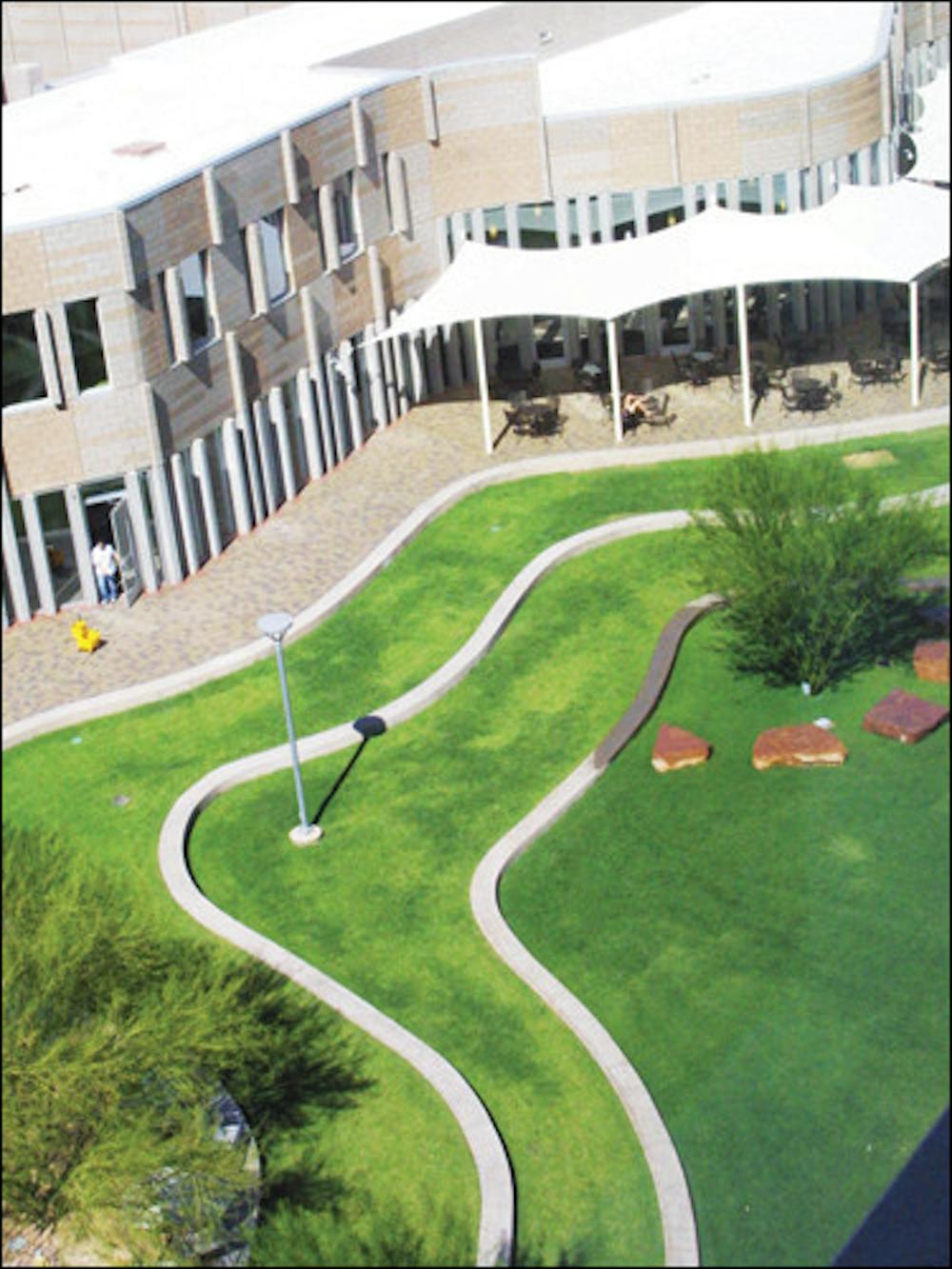The new honors residential complex has earned national recognition for its efforts in sustainable living and design.
The entire Barrett, the Honors College, complex, constructed by American Campus Communities, received a “Silver” rating in Leadership in Energy and Environmental Design from the U.S. Green Building Council, said Joe Canarie, a community assistant at the Sustainability House at Barrett (SHAB).
The building, which has been under construction for 18 months, opened this month.
Several features throughout the complex contributed to the rating, including the use of “gray water,” a greenhouse roof, energy-efficient lighting, temperature-controlled rooms that don’t allow students to change the temperature below 75 degrees Fahrenheit and low-flow water fixtures, Canarie said.
Through the “gray water” system, water from some showers and sinks is recycled and used to water the landscaping in the complex, said Jeremy Mudd, an urban planning senior involved in SHAB.
Students representing SHAB were involved with the design of the complex throughout its construction process.
SHAB was founded by a group of ASU students who wanted to have a place where they could live on campus and still have control over their living practices and choose to live sustainably, Canarie said.
Students who were interested in being involved in sustainable living had the opportunity to apply to live in the SHAB housing within Sage Hall in the complex.
“I think that our group has shown how much awareness there is among the students, a willingness and a desire to integrate those concerns for environmental issues into their daily lives,” Mudd said.
Canarie called the efforts of Barrett, the Honors College to include SHAB’s input “a great testament to student voice” and praised the college for its cooperation.
“I think that it will hopefully serve as an example of how student voice is important,” Canarie said. “I credit the honors college … because they gave us representations throughout the design process and had our back when dealing with the contractors.”
In addition to the built-in energy-efficient features that the surrounding halls share, SHAB students also hang clotheslines so residents can opt to hang-dry their clothing instead of using a dryer, Canarie said.
SHAB is equipped with technology that allows students to track the heating/cooling energy, electricity, and water usage on each floor. Canarie said the information should be available online through ASU’s campus metabolism project soon.
Shauna Tasa, a political science sophomore who lives in the new complex, said the sustainable aspects of the halls impressed her.
“I think it’s a phenomenal implementation and shows that we are taking forward steps to making the world a more maintainable place,” she said. “I’m all for being aware of what’s going on and taking initiative to protect our world.”
While some students are concerned with the fixed temperature minimum of 75 degrees other students, like Tasa, said they understand the limitation on the minimum temperature.
“Considering how much energy it takes to cool things, considering it’s in Arizona, it just makes sense,” Tasa said.
Reach the reporter at michelle.parks@asu.edu.




